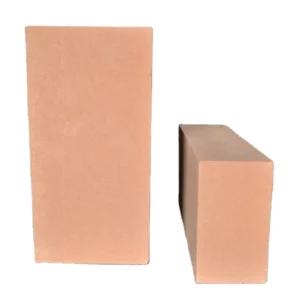When choosing hard fire bricks, there are several factors to consider to ensure that you select the right type of brick for your specific application.
Here are some important factors to keep in mind:
Temperature range: One of the most important factors to consider when choosing hard fire bricks is the temperature range in which they will be used. Different types of hard fire bricks are designed for different temperature ranges, so it’s important to choose a brick that can withstand the temperature of your application.
Composition: Hard fire bricks are made from different materials, such as clay, alumina, silica, and other refractory materials. The composition of the brick can affect its properties, such as its strength, thermal conductivity, and resistance to thermal shock.
Size and shape: Hard fire bricks come in a variety of sizes and shapes, including standard rectangular bricks, arch bricks, wedge bricks, and more. It’s important to choose a brick that is the right size and shape for your application.
Porosity: Some hard fire bricks have a higher porosity than others, which can affect their thermal insulation properties. If thermal insulation is important for your application, you may want to choose a brick with a lower porosity.
Cost: Hard fire bricks can vary in price depending on their composition, size, and other factors. It’s important to consider the cost of the bricks when choosing the right type for your application.
Manufacturer and supplier: It’s important to choose a reputable manufacturer and supplier when purchasing hard fire bricks to ensure that you are getting a high-quality product that is suitable for your application.
By considering these factors, you can choose the right type of hard fire brick for your specific application.
How does the porosity of a hard fire brick affect its thermal insulation properties?
The porosity of a hard fire brick refers to the amount of open space or empty space within the brick’s structure. The porosity of a hard fire brick can affect its thermal insulation properties in several ways.
A hard fire brick with a higher porosity will have more open space within its structure, which can allow heat to transfer more easily through the brick. This means that a more porous brick may have lower thermal insulation properties and may be less effective at retaining heat.
On the other hand, a hard fire brick with a lower porosity will have less open space within its structure, which can make it more difficult for heat to transfer through the brick. hard fire brick This means that a less porous brick may have higher thermal insulation properties and may be more effective at retaining heat.
When choosing a hard fire brick for a specific application, it’s important to consider the level of thermal insulation required. If thermal insulation is a key factor, you may want to choose a brick with a lower porosity. However, if other properties such as strength or resistance to thermal shock are more important, a brick with a higher porosity may be more suitable.
It’s worth noting that the porosity of a hard fire brick can also affect its resistance to chemical attack and other factors that can impact its durability. Therefore, it’s important to choose a brick with the right balance of properties for your specific application.
